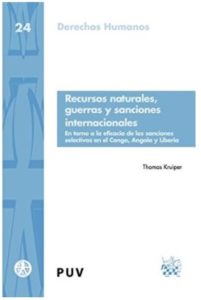When it comes to integrating corporate social responsibility (CSR) into business models, cosmetics still seem to matter more than actual impact. Even as consumers grow increasingly sensitive to CSR, claims are more important than real performance. By doing so, many companies are missing out on business opportunities. If businesses were to take more seriously the concept of creating shared value (CSV), they could create measurable social impact as well as business impact at the same time. Successful CSV creates healthy value chains, safe products, happy employees and local communities, and above all profits.
Development and the Knowledge Problem: Towards an open source development sector?
Knowledge about development is temporary, diffuse, and not locally owned. Apart from a few large International organisations, the almost infinite amount of data gathered by (International) non-governmental organisations (NGO) is completely inaccessible. This configuration, in which the interests of individuals and organisations are not aligned with the sector´s general purpose, is detrimental for effective development. In a world where knowledge means employment, such a configuration is hard to break through. But if the sector started sharing development knowledge openly, would it make itself redundant?
UN Sanctions on Guinea Bissau: Waiting for a Coup to Happen
In April 2012, eleven military leaders involved in the coup d´état in Guinea-Bissau were subjected to a UN travel ban. Although neatly in line with United Nations (UN) sanctions policy regarding sovereignty, in reality the sanctions were a painstakingly late reaction to the uprising of Guinea-Bissau as Africa´s first “narco-state”, which had been corroding politics and society for almost a decade. While institutions kept the Sanctions Committee hostage, the kingpins in Guinea-Bissau had plenty of time to ruin its governance structures. This analysis suggests that Guinea-Bissau only became a target of UN sanctions when it had made its way on the map as the first African “narco-state”. Unfortunately, the coup that justified UN agency to do something about it came almost a decade too late.
Book Publication! “Recursos Naturales, Guerras, y Sanciones Internacionales”
After years of hard work, a master’s thesis at the University of Amsterdam, and a post-graduate thesis at the University of Valencia, I have finally managed to get my research published as a book! Special thanks to Carlos Flores Juberías for all his support, to Ivanka Puigdueta for her tremendous effort in translating the book to Spanish, and to Tirant lo Blanch for the editing and publication. I could not have done it without you.
The book is for sale at Tirant lo Blanch as well as on Amazon.

Money for Nothing: What the Development Sector Could Learn from Cash Transfer Programmes
Earlier this year Balder Hageraats published an article titled “International Development: Please drop the Charity Act”, criticizing the schizophrenic relationship between donors, NGO´s, and local beneficiaries of development help, and arguing for a more efficient development sector in which needs on the ground take centre-stage. If the sector were to follow such an approach, it could learn a lot from the global South, where various government programmes transfer money directly to the poor, no strings attached. They have led the way in showing that poor individuals already KNOW how to escape poverty: they simply lack the cash.
Power and UN Sanctions Policy
Many students of international sanctions recognize some sort of progress of sanctions as coercive tools. In this essay I attempt to look beyond the issue of economic effectiveness, and into the origins of sanctions; the sources of power that decide under which circumstances UN sanctions should be imposed and that decide which should be the objectives of UN sanctions policy. This leads us to ask another set of questions: How can UN sanctions create international security? Which threats to security should be sanctioned? Who are the usual suspects? And who is deemed fit to play the role of sheriff? In this essay I look at the history of UN sanctions policy in order to answer two questions. (1) How have sanctions changed? And (2) Why did sanctions change?
Dissecting the Corruption Perceptions Index
Earlier this year, when I was in Liberia collecting data for a research project, a national radio station announced that Liberia had made some big steps towards becoming a less corrupt country. According to the Transparency International Transparency Perceptions Index (CPI) of 2012, Liberia had climbed from 22 to 41 points over the past seven years, which measures the perceptions of corruption in public sectors of 174 countries. With this score, Liberia outperformed countries such as Greece, Panama, and China. They were almost on equal footing with Italy, which scored 42 points. In Africa, Liberia now ranks 11th on the list of least corrupt countries, beating substantially more developed countries on the list such as Tanzania and Morocco. For those people that have never been to Liberia, these results might simply be surprising. Perhaps Liberia is one of those exceptional countries that do well out of war and that adopt sensible policies in order to further economic and social development. To me, it rather led me to question the index itself.
